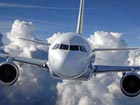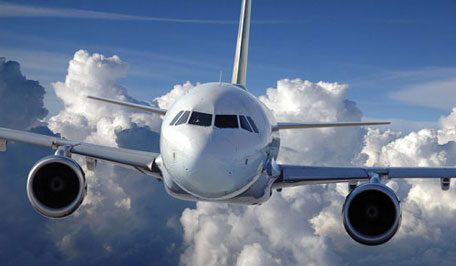| Videos | ? Latest |
|
? Feature | ? Sports | ? Your Videos |
China responds to EU carbon emissions tax

 0 Comment(s)
0 Comment(s) Print
Print E-mail CNTV, February 9, 2012
E-mail CNTV, February 9, 2012
A group of 26 countries opposed to the EUs aviation emissions trading scheme will meet in Moscow on February 21st to discuss a plan of action. The governments of Russia, India, the U.S. and China, claim the EU law that forces all airlines touching down or taking off within the bloc to pay for their carbon emissions is discriminatory and illegal.
 |
|
China responds to EU carbon emissions tax. |
The Civil Aviation Administration of China has issued a statement authorized by the State Council, banning all Chinese airlines from paying this tax without government approval.
Right behind me is the building of the Civil Aviation Administration of China in Beijing. Chinas top authority of civil airlines and flights has banned Chinese airline companies from paying the EU the carbon emission fees.
Chinese airlines have also been told not to increase fares because of the EU scheme. The CAAC says the EU decision runs contrary to the principles established by the UN Framework Convention on Climate Change, as well as international civil aviation regulations.
Markus Ederer, EU Ambassador to China, said, "The European Union has made this decision after trying international solutions unsuccessfully through discussion to reach agreement."
The EU started taxing airlines using its airspace on January 1st and some 4-thousand airlines will have to cough up the cash. China is not the only country opposed to this scheme. The United States, Russia, India and Canada have all voiced strong discontent, likening the move to a new trade barrier.
Pan Jiahua from Inst. of Urban and Environmental Studies, CASS, said, "The EU decision, to some extent, is grounded for the reason of carbon emission reduction. But the impact will be not so good, for it will not be sustainable. It has to consult all the stakeholders, instead of a unilateral regulation."
The representative of the International Air Transportation Association in China, Zhang Baojian, explains that the current disagreement among governments has put airline companies in an awkward situation.
Zhang Baojian said, "Chinese government needs to have a tangible reaction toward the EU scheme. But this is not the final decision. Airline companies are in a dilemma."
As the legal case begins, the CAAC says it will do its utmost to protect the interests of Chinese individuals and companies.
The tax came into effect last month, but the money wont be claimed until April next year. That gives all side more than a year to settle their differences.





